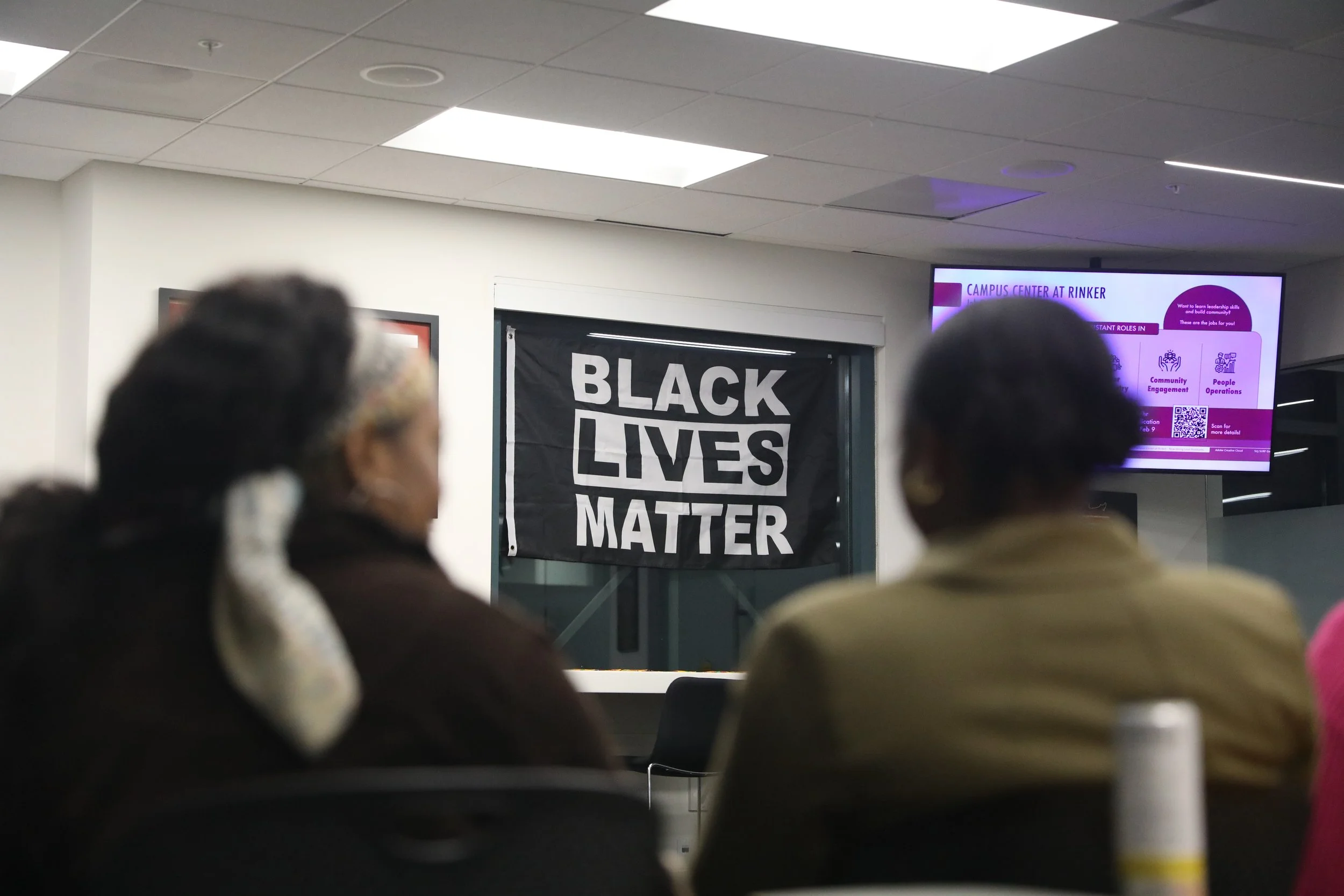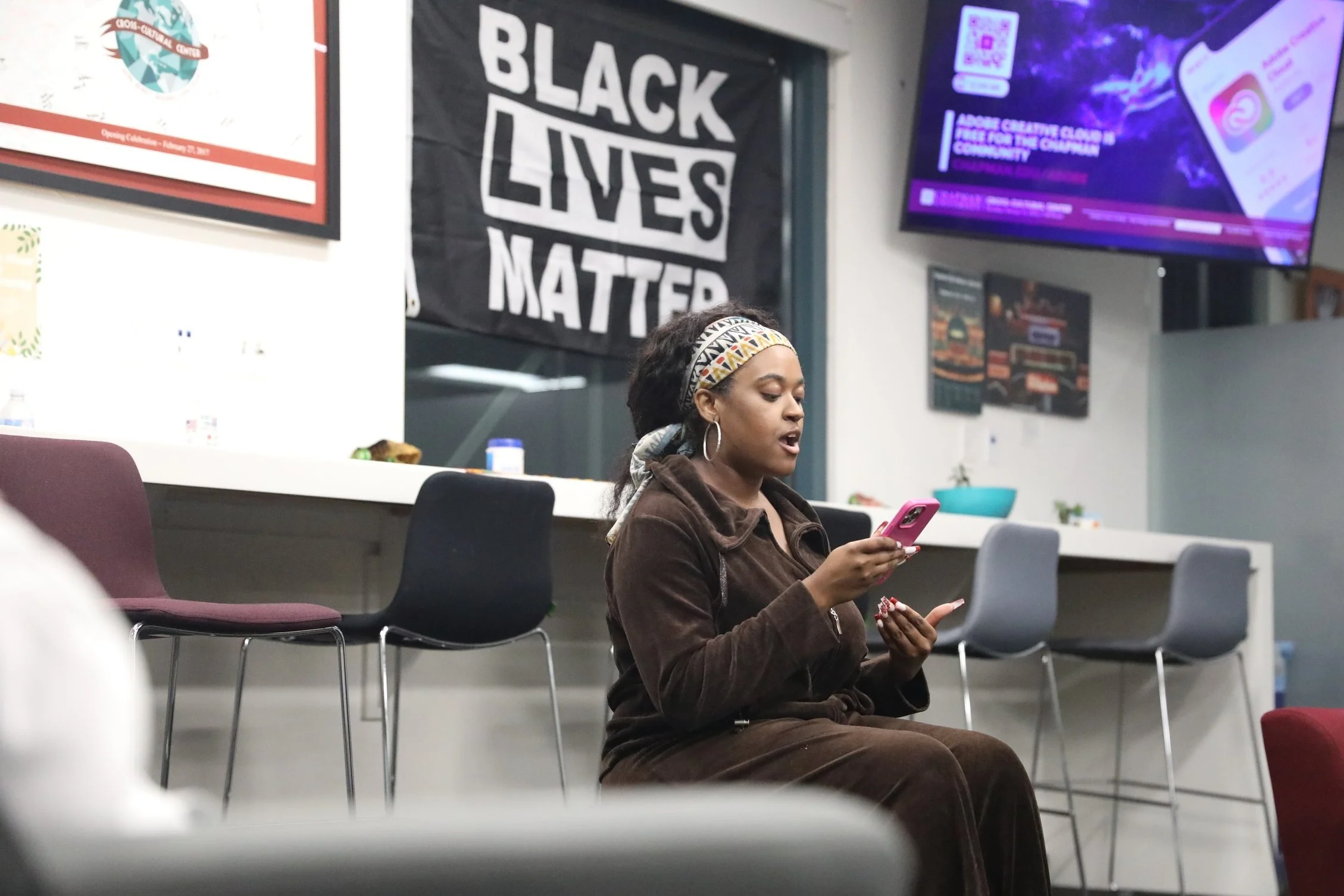Chapman community celebrates Black History Month
The university’s Black Student Union and new director of Black excellence and achievement have worked to create various events this month to honor and recognize Black History Month. Photo by LISA WONG, video & podcast editor
Throughout February, Chapman University administration and students are celebrating Black History Month. From formal dinners to parades, the university will be hosting many events open to the campus community who are interested in honoring this month's significance.
Last year, Chapman’s former Director of Black Excellence and Achievement Justin Riley and graduate assistant Schnayma Saint-Fort created a series titled “28 days of Black History,” which is continuing into this year. The series is a collection of movies, facts and texts for every day in February.
Misty Levingston, Chapman’s new director of Black excellence and achievement, plans to continue this tradition and celebrate in new ways, such as having Chapman-hosted events and getting involved in the annual OC Black History Parade and Unity Fair.
Although February is the official Black History Month, many members of the Black Student Union (BSU) and others argue Black history should be celebrated every month of the year.
Representatives from Chapman marched at the Orange County Black History Parade in Anaheim. Photo courtesy of Misty Levingston
This year, two new highlights have been added to “28 Days of Black History.” According to Levingston, the highlights include figureheads in Black American history.
“So far, we have highlighted the first woman and second Black mayor of Los Angeles, Karen Bass, and Ice-T, who transformed himself from street hustler to rap icon to actor,” Levingston told The Panther.
According to Levingston, this month also marks the first year that Chapman held a table at the OC Black History Parade and Unity Fair.
“The community was excited to see our presence there,” Levingston said. “Next year, I hope we can get more participation from the Chapman community.”
For many events, Levingston collaborates with Chapman’s BSU.
“It’s important to make sure all of the details are there and contracts are taken care of,” Levingston. “The goal is to have programming that ranges from engaging, entertaining and educational.”
One specific event that has been planned since October is Black Family Dinner, which allows family members to explore and see Chapman’s campus.
“Family members are included because when younger siblings see the campus, they can aspire to be a future Chapman student,” Levingston said.
Sophomore Khyra Stiner, BSU’s vice president of public relations, explained to The Panther that the club and Levingston met to help the Diversity, Equity and Inclusion (DEI) office with planning this month's events.
Adriann Wrice, a junior who serves as the vice president of membership for BSU, told The Panther about the purpose of the events and what BSU hopes to accomplish.
Aaliyah Halu, a member of the Black Student Union, performs a poem at an open mic event hosted by BSU to celebrate Black History Month. Photo by LISA WONG, video & podcast editor.
“We really wanted to celebrate and highlight the Black culture on campus,” Wrice said. “With a mix of social and professional-setting events, we hoped to encourage more community building for the Black students and to show the rest of the Chapman community what is important to us.”
Both Wrice and Stiner agree that celebrating Black History Month is important for everyone to recognize and appreciate the contribution of Black people in the U.S.
“No matter what grade or level of education you are in, there is still so much about Black history that we never learn,” Stiner told The Panther. “Black History Month is an opportunity to learn more about the way Black and African American people have shaped the world we live in today. For me, it’s a chance to truly celebrate who I am and where I come from and experience the recognition that I feel should represent all year round.”
Wrice specifically spoke to the culture that Black people have created in the U.S., and how that culture should be respected and appreciated.
“I think it’s important to remember that we are Black every day of the year, regardless of the month,” Wrice said. “Having our original culture stripped from us many years ago, Black Americans have worked to create a new history and culture fused with true origins that are celebrated by us year round. Black History Month just gives us an excuse to consciously include the rest of the world in our magical world of excellence. It is important because it highlights the achievements of Black people around the world and provides so much history and education to those who care to engage with it.”
Although Black history is mainly recognized in the month of February, Levingston also stressed the importance of recognition year round.
“I celebrate Black history all year long,” Levingston said. “Black people physically built this country and made this country wealthy — from plantations to Wall Street — while enslaved. Let us not forget that in spite of those conditions, Black folks have been able to create culture that influences the entire world. Black people are dope and should always be celebrated.”



